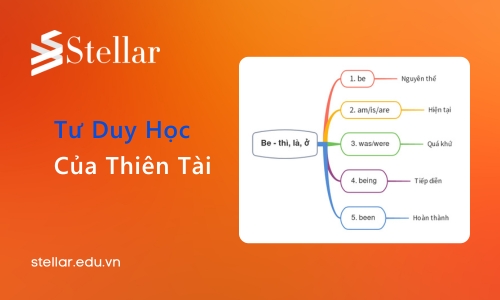Truyện Song Ngữ: Cách Ghi Nhớ Từ Vựng
On Wednesday, I go to school again.
Vào thứ Tư, tôi lại đến trường.
At the beginning of the lesson, one student says,
Lúc đầu buổi học, một học sinh nói,
“I started to read more. I feel that it is good for me. I can see how my grammar is better, but I have a problem.
“Em bắt đầu đọc nhiều hơn. Em cảm thấy điều đó tốt cho mình. Em có thể thấy ngữ pháp của mình tốt hơn, nhưng em có một vấn đề.
When I read and I don’t know a word, I look at the word in a dictionary. Then I continue reading.
Khi em đọc và không biết một từ, em tra từ đó trong từ điển. Sau đó em tiếp tục đọc.
Sometimes when I see the same word again 10 minutes later, I don’t remember the word and I have to look at it again.
Đôi khi khi em thấy từ đó lại sau 10 phút, em không nhớ từ và phải tra lại.
Can you help me to remember the words better?”
Cô có thể giúp em nhớ từ tốt hơn không?”
Our teacher says that it is an interesting question and she gives this explanation,
Cô giáo của chúng tôi nói rằng đó là một câu hỏi thú vị và cô giải thích như sau,
“It is normal that you don’t remember the new word immediately.
“Thật bình thường khi em không nhớ từ mới ngay lập tức.
Usually, you will have to look at the word 5 times before you remember it.
Thường thì em sẽ phải tra từ đó 5 lần trước khi nhớ nó.
There will be also words which you will have to see 10 or 15 times.
Cũng sẽ có những từ em phải gặp 10 hoặc 15 lần.
These words are usually verbs.”
Những từ này thường là động từ.”
“When we learn a new word, the word goes through phases.
“Khi chúng ta học một từ mới, từ đó sẽ trải qua nhiều giai đoạn.
Only when you achieve the last phase, you remember the word very well.”
Chỉ khi em đạt đến giai đoạn cuối cùng, em mới nhớ từ đó thật rõ.”
“There are five of these phases.
“Có năm giai đoạn này.
We can look at them now.”
Chúng ta có thể xem chúng bây giờ.”
“The first phase is the moment when you see the word for the first time and you don’t know the word.
“Giai đoạn đầu tiên là khi em nhìn thấy từ lần đầu tiên và không biết từ đó.
You look at the word in the dictionary.”
Em tra từ trong từ điển.”
“The second phase is the moment when you see the word for the second time.
“Giai đoạn thứ hai là khi em nhìn thấy từ lần thứ hai.
You know that you saw this word before, but you still don’t remember its meaning.
Em biết rằng em đã gặp từ này trước đó, nhưng em vẫn không nhớ nghĩa của nó.
You look at the word in the dictionary again.”
Em lại tra từ trong từ điển.”
“The third phase is the moment when you see the word again and you feel what it could mean but you are not sure.
“Giai đoạn thứ ba là khi em nhìn thấy từ một lần nữa và cảm nhận được nó có thể nghĩa là gì nhưng không chắc chắn.
For example, you know that the word is some kind of object or some animal or a verb.”
Ví dụ, em biết từ đó là một loại đồ vật, động vật hoặc là một động từ.”
“The fourth phase is the moment when you already know what the word means when you see it
“Giai đoạn thứ tư là khi em đã biết từ đó nghĩa là gì khi nhìn thấy nó
but you are not able to remember the word when you want to say it.
nhưng không thể nhớ ra từ khi muốn nói.
When this phase happens, the word is in your passive vocabulary.”
Khi giai đoạn này xảy ra, từ đó nằm trong vốn từ vựng bị động của em.”
“The fifth phase is the moment when you are able to use the word when you speak.
“Giai đoạn thứ năm là khi em có thể sử dụng từ đó khi nói.
Now you can see there are five phases all together.”
Bây giờ em có thể thấy có tổng cộng năm giai đoạn.”
“Do you understand now why it is not possible to remember a new word when you see it for the first time?
“Em có hiểu tại sao không thể nhớ một từ mới khi lần đầu tiên gặp nó không?
It is usually not possible to jump across all the phases with the first meeting with the word.
Thường thì không thể nhảy qua tất cả các giai đoạn khi lần đầu tiên gặp từ.
You have to see or hear every word many times and let the word go through all the phases.”
Em phải thấy hoặc nghe từ nhiều lần và để từ đó đi qua tất cả các giai đoạn.”
“You can be happy not only when you learn a new word perfectly but also when you get from one phase to the other.
“Em có thể vui không chỉ khi học từ mới hoàn hảo mà còn khi em vượt qua từ một giai đoạn sang giai đoạn khác.
When it happens, you are closer to the final goal and it is to use the word without problems in everyday communication.”
Khi điều này xảy ra, em đang tiến gần hơn đến mục tiêu cuối cùng, đó là sử dụng từ một cách dễ dàng trong giao tiếp hàng ngày.”
It is interesting to me.
Điều này thật thú vị đối với tôi.
I didn’t know about these phases, but it is all logical.
Tôi không biết về những giai đoạn này, nhưng nó hoàn toàn hợp lý.
I also have this experience when I look at a new word in the dictionary but two minutes later I don’t know what the word means and I have to look at the word again.
Tôi cũng có trải nghiệm này khi tôi tra từ mới trong từ điển nhưng hai phút sau tôi lại không biết từ đó nghĩa là gì và tôi phải tra từ lại.
I feel stupid when I don’t remember the word.
Tôi cảm thấy mình thật ngốc khi không nhớ được từ.
Now, I know that it is OK not to remember the word forever when I see it for the first time.
Bây giờ, tôi biết rằng không sao cả nếu không nhớ mãi một từ khi lần đầu tiên nhìn thấy nó.
I need more meetings with the word before I can use the word well.
Tôi cần gặp từ đó nhiều lần hơn trước khi có thể sử dụng tốt từ đó.
After school, I go to my football training.
Sau giờ học, tôi đi tập bóng đá.
Our coach tells us that there is a match on Saturday.
Huấn luyện viên của chúng tôi nói rằng sẽ có một trận đấu vào thứ Bảy.
The school team will play against another school team from Cambridge.
Đội trường sẽ đấu với một đội trường khác đến từ Cambridge.
Our coach tells me to come and play for the school team.
Huấn luyện viên của chúng tôi bảo tôi đến và chơi cho đội trường.
I am very happy and I am looking forward to the Saturday match.
Tôi rất vui và háo hức chờ đợi trận đấu vào thứ Bảy.
When you want to remember a new word, you need to see or hear the word about ten times.
Khi bạn muốn nhớ một từ mới, bạn cần thấy hoặc nghe từ đó khoảng mười lần.










![Ý nghĩa cách viết ['s] là gì?](https://file.edubit.vn/storage/39c160cc462c6d690e3433feaf038a23966c241b/y-nghia-dau-so-huu-cach.png)






